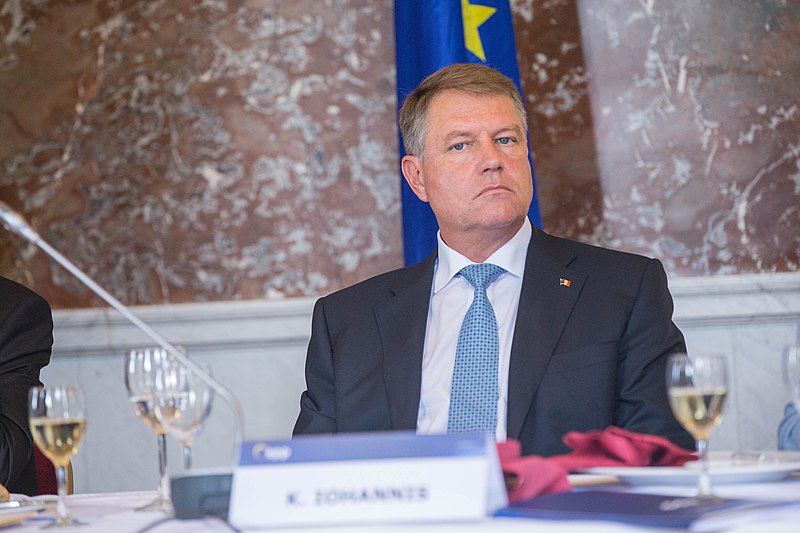New Balance of Power on the Romanian Political Scene

Recent trends on the Romanian political scene were confirmed by the presidential elections, which were won in the second round in November 2019 by Iohannis, the acting president, who obtained 66% of the votes. The national liberals’ strong position was indicated by the results of the European Parliamentary elections in May 2019, which were won by PNL with 27% of the votes, revealing a change in the balance of political powers in Romania. At the time, the ruling Social Democratic Party (PSD) received just 22.5% of the votes, half what it won two and half years earlier (45%) in the parliamentary elections, while the Alliance of Liberals and Democrats (ALDE) did not exceed the 5% electoral threshold.
Fall of the PSD-ALDE Coalition
The coalition broke up in September 2019 after ALDE began to distance itself from its increasingly unpopular bigger coalition partner and tried to regain the confidence of voters before the next election. It demanded the reconstruction of the Viorica Dăncilă government and programme changes. When neither demand was satisfied and PSD refused to designate the ALDE chairman as the parties’ joint candidate in the presidential election, ALDE broke the coalition and in October 2019 voted no-confidence in the Dăncilă government, which this time only had the support of PSD.
The coalition lost half of the public’s support through controversial law changes. It had been trying to subordinate the prosecutor’s office and established a Special Section of the Judiciary to try prosecutors and judges. It also forced through amnesty for those who had been sentenced to up to three years in prison and raised the threshold for losses caused by abuse of power to 200,000 RON (about €42,000). The clear goal of these changes was to ensure impunity for Liviu Dragnea, the leader of PSD and the speaker of the Chamber of Deputies who had ruled the government behind the scenes. He had been convicted of abuse of power and before that, had received two-years’ probation for attempting fraud in the 2012 referendum. Despite Dragnea’s determination—at his request, the coalition changed prime ministers twice because they hadn’t been successful in introducing the changes—in May 2019, he was imprisoned on a 3.5-year sentence and Dăncilă became the chairwoman of PSD.
Establishment of the PNL Minority Government
The opposition, although it voted no-confidence in the Dăncilă government, did not form a new coalition. The smaller parties did not want to join a government with PNL—the largest opposition party—instead aiming to compete with it for the same electorate in the election. That is why smaller opposition parties—the Save Romania Union (USR), the People’s Movement Party (PMP), the Democratic Alliance of Hungarians (UDMR), and deputies of national minorities—received programme concessions and positions in the administration for their support of the minority government of Orban, the leader of the PNL. The PRO România party—created by ex-Social-Democrats in conflict with Dragnea—refused to support it. However, a few of its MPs, and some from PSD, broke ranks and boycotted the voting. This guaranteed the vote of confidence for the new government in November 2019.
The Orban cabinet has a transition character. It has just 16 ministers compared to 26 in the previous one. Its programme comprises little more than day-to-day management of the state and improving relations with EU institutions, attempting to mend ties after the PSD-ALDE coalition’s confrontational policy towards them. This minimalism is calculated to maintain high public support for PNL ahead of the parliamentary elections at the turn of 2020 and 2021. When the government was formed in November 2019, it was polling at 38-39% but by December 2019, it had risen to 45-47%. This rapid increase in support is primarily due to Iohannis’s win. Although the government wants to avoid significant reforms that could put public confidence in it at risk, actions such as the announcement of the dissolution of the Special Section of the Judiciary (according to a CURS survey, about 41% of respondents are against it and 33% in favour) could undermine this goal.
President’s Re-election
The president owes his electoral success to the resistance to changes in law proposed by the PSD-ALDE coalition. He set himself as the guarantor of maintaining European standards of the rule of law and the fight against corruption. In Romanian society, among those who trust EU institutions the most, concerns were raised by the warnings from both the European Commission (EC) and the European Parliament about the potential launch of Article 7 procedures of the Treaty on European Union. Iohannis was also supported by the coalition’s failure at the EU level. The Dăncila government was the only one that objected to the appointment of Laura Codruţa Kövesi—a Romanian national—as European Public Prosecutor. She was the head of the National Anti-Corruption Directorate before she was dismissed by Dragnea in 2018. In addition, three coalition candidates for transport commissioner on the new EC were rejected by incoming President Ursula von der Leyen, who later accepted a candidate of the PNL cabinet. Furthermore, Dăncilă, as PSD’s presidential candidate, won just 34% of the vote, the party’s worst result since 1989. This marked the end of her six-month leadership of the party.
Conclusions and Perspectives
The establishment of a minority cabinet by PNL is the result of Iohannis’s ability to assign power and the authority of the president’s office. By acting against the then-ruling coalition’s departure from the rule of law and the fight against corruption, he strengthened not only his political position but also his party of origin. As a result, PNL will run in the next parliamentary election as a government formation supported by the president. What is more, the Iohannis’s re-election weakened USR, PNL’s main competition which also bases its programme on an anti-corruption plank. Although this party in May 2019 won 22.4% of the votes in the European elections, in the December polls it was down to half of this level of support. In this year leading up to elections, the Orban cabinet will, on the one hand, refrain from significant reforms and, on the other, will promote its good relations with EU institutions and largest Member States, as well as with the U.S. However, its programme will be presented only in the election campaign. If PNL maintains high public confidence, it will be a key formation in the post-election coalition, which will make it easier for Orban to invite the smaller centre-right parties.
Dragnea’s conviction means this politician, who in recent years had in practical terms ruled the PSD-ALDE government, is now excluded from competing in the election. At the same time, it demonstrates the resilience of the Romanian judiciary to politicians’ ad hoc machinations. This strengthens, among others, Romania’s civil society, which protested the changes in the law in the largest manifestations since the fall of communism. Both Dragnea’s conviction and the collapse of the coalition as a consequence of its violations of the rule of law are a warning to politicians in Romania against attempts to influence the judiciary or weaken the fight against corruption. As a result, PSD now will run in the elections as part of the opposition. Weakened after losing the EP vote, the collapse of its cabinet, and defeat in the presidential election, it is polling at 18.5% (December 2019). To regain the public’s support, it will have to present new ideas for the development of the state and not just detach itself from Dragnea, who had subordinated the party to his private interests.
Iohannis’s second term will bring a continuation in foreign and security policy, which in Romania is conducted by the president. This means the further strengthening of relations with the largest EU countries and the U.S., with which he maintained very good relations and which called on the PSD-ALDE coalition to abandon the changes in the law. The president will continue to support the strengthening of NATO’s Eastern Flank and regional cooperation, including not only the “Bucharest Nine” format but also the Three Seas Initiative, which is particularly in line with Poland’s interests. The establishment of the Orban government in place of the Dăncila cabinet will be conducive to better support for the president’s activities, especially at the EU forum. At the same time, this change will eliminate the risk of Article 7 procedures. This increases Romania’s credibility in the EU and in its relations with the U.S., although for Poland’s government it means losing an ally in disputes with EU institutions regarding the rule of law.



